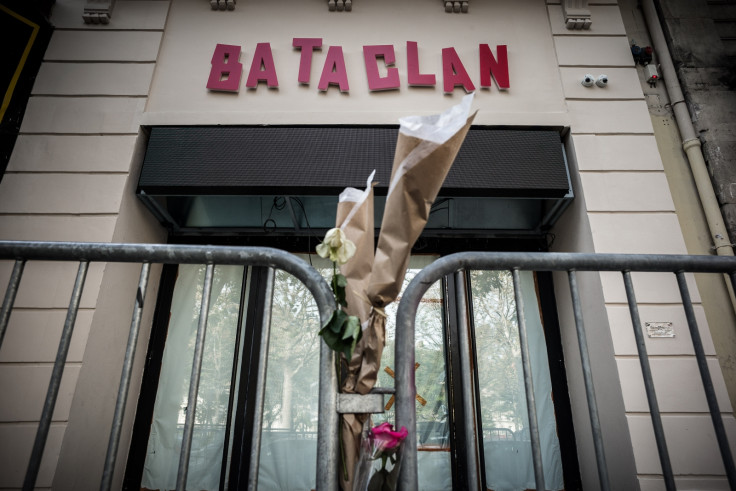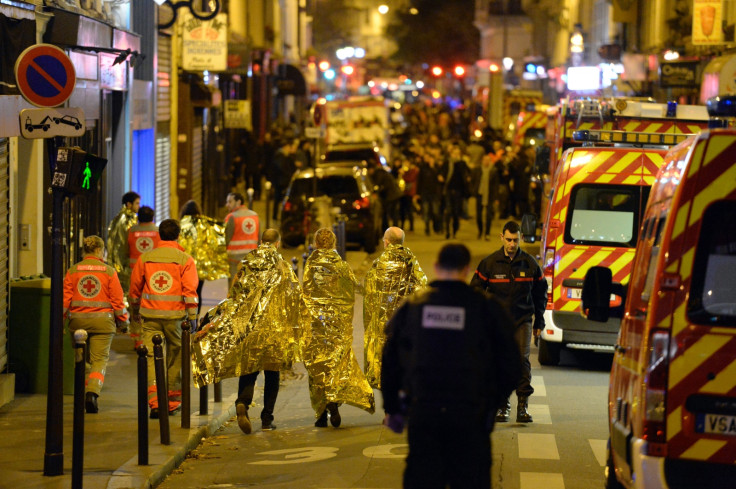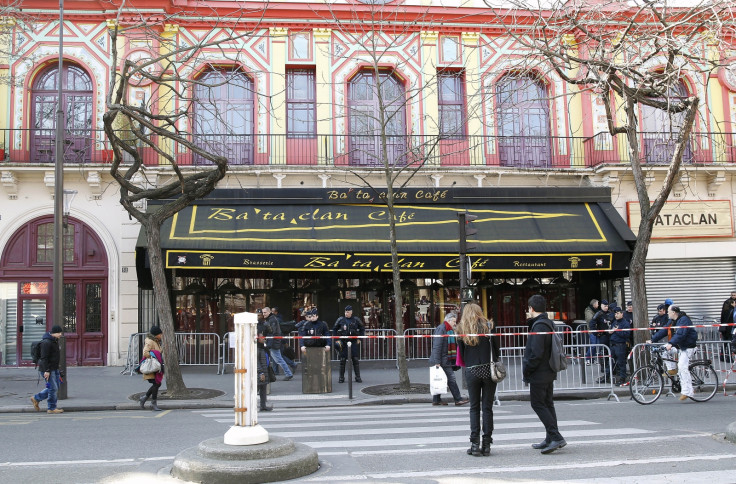Surviving the Bataclan attack: 'I saw horror, chaos — people were dying in the street'
Daniel Psenny, a journalist, witnessed the jihadi attack at the Bataclan music venue last year.
Twelve months ago, a black Volkswagen Polo pulled up outside the Bataclan music venue in Paris on the evening of 13 November, and three heavily armed gunmen got out. In less than three hours, the men were dead, having killed 89 people at the concert hall and critically injuring dozens. Daniel Psenny, a journalist for the French newspaper Le Monde, watched the horrific attack unfold.
"The Friday was an ordinary day and nothing special had happened," Psenny recalls, speaking from his apartment, which overlooks the Bataclan's side exits. "I went home and started work around 8.30pm. And then around 9.40pm, I heard what I thought were fireworks."
At first, he thought the commotion was just fans waiting to meet the artists playing at the Bataclan. The Eagles of Death Metal were playing a sold-out gig that night, and more than a thousand concertgoers were in the venue.
"But then I heard the screams and I went to my window and I saw horror," Psenny says. "A lot of chaos. The noise I had heard was actually gunfire, and people were screaming and falling down, dying in the street."
He rang his editor and told him something horrific was happening at the Bataclan — although he was not sure exactly what. Psenny was told terrorist attacks were taking place across the city, including at a football match at the Stade de France. The gun siege outside his door at the Bataclan would be the deadliest of the night.
"At that moment, I decided to take pictures and film for five or six minutes, so I would have evidence of the attack. So many people were running, trying to flee."

As people tried to escape from the side exit of the venue to the alley below Psenny's flat, they were shot at from behind at close range as they fled. Witnesses described bodies falling beside them as they escaped to the exits. On Psenny's film, a pregnant woman dangles from a window ledge by her fingertips, pleading "I'm pregnant, I'm slipping", before she is rescued by a man later identified as "Sebastian".
"I was told later that she was alive, and that the baby was born," Psenny says.
At around 10.15pm, the gunmen took hostages to the first floor of the Bataclan. "There was no more gunfire for a few moments, and I thought the shootout was over, so I went downstairs to the street," Psenny continued. "I opened the door and tried to get people to hide inside the hallway of my building. I looked to my right, and I saw a man very close, the closest of all the victims and he was lying in the street."
Psenny dragged the victim, an American called Matthew who was still alive but badly wounded, into the hallway of his building. "Just before I closed the door, I leaned out to see what was happening — and I was shot in the arm."
"My head was filled with panic, there was a lot of blood," Psenny says. "I was imagining the shooter being behind me and coming to finish us." He used his shirt to tie a makeshift tourniquet around his arm and called his neighbour, Bruno, who lived in an apartment on the fourth floor of the building where they took refuge.
With the gunmen still inside the Bataclan, the surrounding area was under lockdown and no emergency services could reach the three men. "Matthew was lying on the sofa in a bad shape, he had hypothermia and was vomiting, and blood was splashing from my arm because the tourniquet wasn't working," Psenny says. "I was not a journalist anymore, I was just a civilian hit by a bullet and wounded, I thought I was going to die from bleeding."

A year later, a single bullet hole in the wall of the front of the Bataclan serves as a reminder of the events of 13 November, as do the flowers tied to the barriers surrounding the venue. Some 130 people died in the coordinated attacks across the city that evening and hundreds more were injured. Psenny says the mood in the city, known for its joie de vivre, has changed.
"There is more tension, more police, more firefighter sirens. There is always some fear. Since 13 November, there is no longer the carelessness that existed in Paris and other big capitals, like walking, going to a concert, eating out," he observes.
It is significant that the attacks took place in the places that are typically Parisian — in its terraced bars and restaurants, its national stadium and in the historic Bataclan, which has served as one of Paris' cultural hubs since it opened in 1865.
"The attacks on 13 November were on the French way of living, and on the European way of living," Psenny says.
"We hope it is over, but it is easy to think there will be other attacks — whether it is in France, in Germany, in England or in Belgium. In brief, all countries taking part in the war against Daesh in the Middle East."
And France, in particular, has been a target. In January 2015, the offices of French satirical magazine Charlie Hebdo were attacked, with 12 killed. Eight months after the November assault, France was stunned once again when a truck driver mowed down crowds celebrating Bastille Day on the seafront in Nice, killing 86 people — many of them children. The armed man, 31-year-old French-Tunisian Mohamed Lahouaiej-Bouhlel, drove the vehicle at high speed for more than a mile along the beachfront promenade, before he was shot dead by police.

France has a long and complex history with North Africa, from where the bulk of its Muslim immigrants originate, but one of the key problems is the physical and cultural isolation of immigrant communities far away from wealthier neighbourhoods.
"I think the terrorist attacks are the result of many years of a problem with integrating immigration in France," Psenny analyses. "The biggest problem with integration is that you can't deal with it in a few days or a few months, because this hasn't happened for 50 years. I don't think the state can resolve this quickly."
On the eve of the first anniversary of the attacks, music will fill the Bataclan concert hall once again for the first time in a year. On Saturday, Sting will reopen the venue in a performance to "remember and honour those who lost their lives", and celebrate the "life and the music" that the Bataclan represents.
In an emotional announcement, the venue's director Jerome Langlet said he hoped the theatre can reclaim its role as one of the French capital's leading music venues — and not just remain a reminder of the tragedy.
"I think that the Bataclan reopening is a symbol that shows the world life is starting again in Paris," Psenny says. "Some are for and some are against it reopening. Personally I think we have to move forward and reopen the venue, and start again."
© Copyright IBTimes 2025. All rights reserved.






















